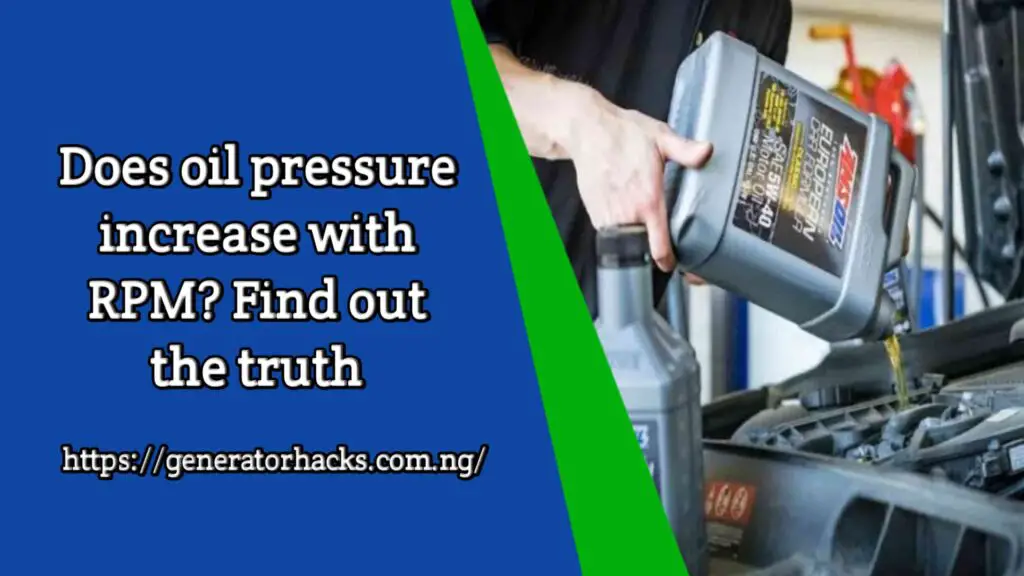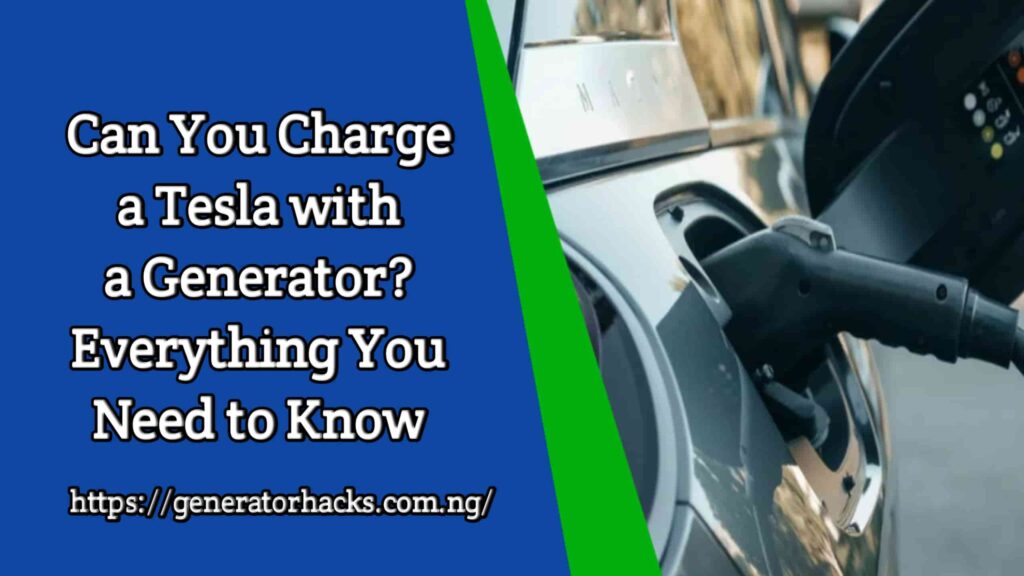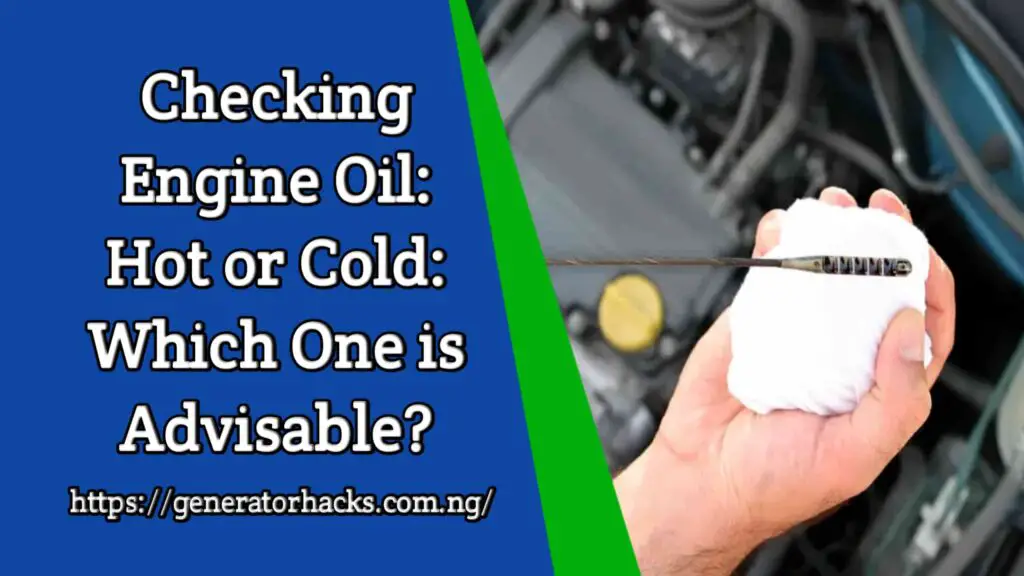As an Amazon Associate, we earn from qualifying purchases. This does not affect the price you pay or the quality of the products you buy. For more information, please read the full affiliate disclosure here.
For the past few days, we have been getting this question “how long do generators last” from our audiences. While some say their generator doesn’t last long before developing faults or stopping working due to damages caused by lack of maintenance, some say otherwise.
However, it might sound surprising but no, generators are invaluable tools for powering our homes, businesses, and outdoor activities — without them, most of us will lose a lot.
Additionally, these generators we are talking about can also keep our lights on during a blackout, our fridge running during a storm, our tools buzzing on a job site, or even our RV appliances humming on a camping trip.
And at the same time, they are also complex machines with many parts that can wear out or fail over time if not maintained adequately. So, to know what to expect from your generator’s lifespan, how to maintain it properly, and when to replace it if needed.
In this blog post, Generator Hacks and its teams answer some common questions about the lifespan of generators, such as:
- How long do generators last?
- What factors can affect a generator’s lifespan?
- How can you extend your generator’s lifespan?
- When should you replace your generator?
- And more!
We also share some practical tips, hacks, and insights from our experience as generator enthusiasts and experts.
So, let’s dive into the world of generators and discover how to make them last longer!
How Long Do Generators Last?
The answer to this question depends on different factors, such as the type of generator, the quality of its components, the frequency and intensity of its use, and the level of maintenance and care it receives.
However, as a general rule of thumb, generators can last between 10 and 30 years with the proper upkeep and occasional repairs or replacements.
Having said that, let’s break down some of the common types of generators and their typical lifespans:
1. Portable Generators
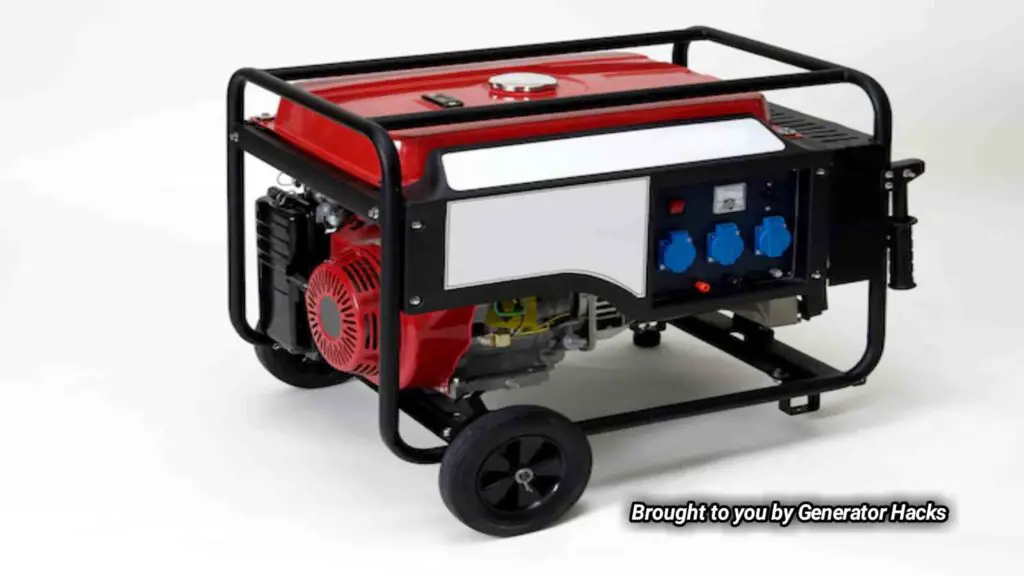
Portable generators are the most common type of generator for residential, commercial, and outdoor use — you can find them anywhere you go.
These types of generators come in various sizes, shapes, and fuel types (gasoline, propane, diesel), and at the same time, they can produce different levels of power output (measured in watts).
Portable generators are often used as backup power sources during emergencies, outdoor events, or remote locations, and they are not used to power much or heavily loaded equipment.
Additionally, when it comes to the lifespan of a portable generator, a lot of things such as the brand, model, and usage, determine how long it can last.
However, in most cases, portable generators usually last between 10 and 15 years if they are maintained properly and used intermittently (i.e., not running continuously for days or weeks).
2. Standby Generators
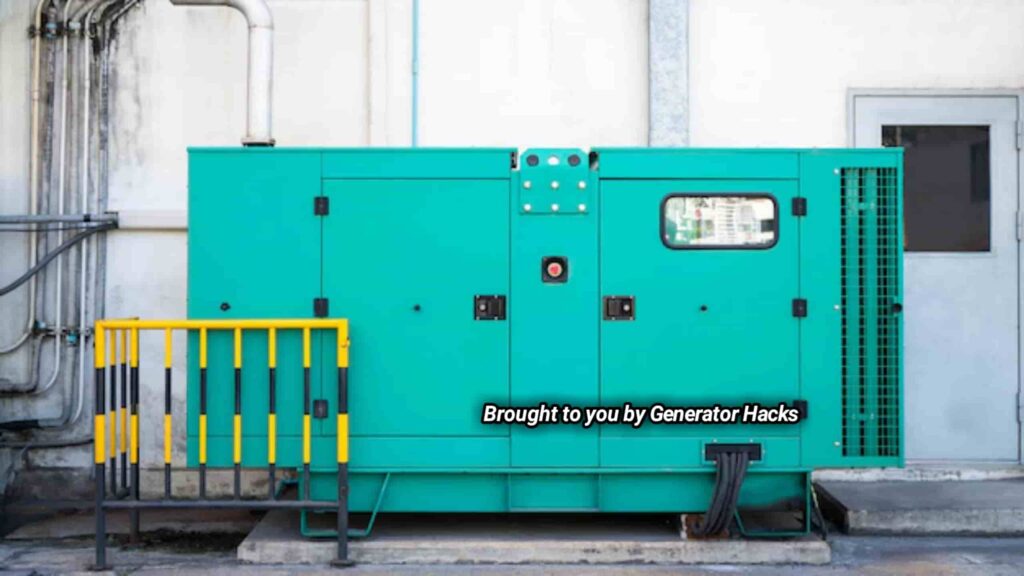
Unlike portable generators, standby generators are more expensive, bigger, and more powerful. They are often installed permanently outside or inside a building for shade.
These types of generators are connected to a home or business’s electrical system and automatically turn on when the main power goes out, and they run on natural gas, propane, or diesel.
When it comes to powering heavy-loaded equipment, these are the types of generators you can go for. And even when it comes to rental services, they are known as commercial generators.
Additionally, the lifespan of standby generators can be longer than that of a portable generator due to their higher quality components, more advanced technology, and less frequent use.
Based on that, standby generators can last between 15 and 30 years if it is maintained properly and used only during power outages or periodic tests (which should be done at least once a month).
3. Inverter Generators
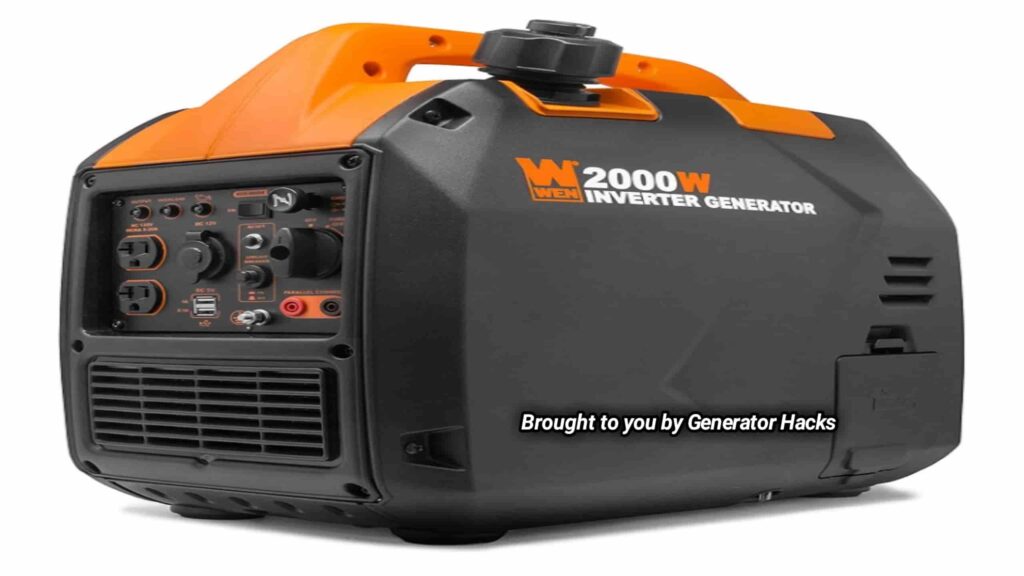
Lastly, inverter generators are a newer and more efficient type of portable generator that use advanced electronics to produce clean and stable power.
Because of how portable inverter generators are, they are often used for camping, tailgating, or other outdoor activities where noise, weight, and fuel efficiency are important factors.
And as you may know, these generators are usually smaller and quieter than conventional portable generators, and they can run for longer periods on less fuel, so they are a great choice if you haven’t got one yourself.
Furthermore, when it comes to the lifespan of inverter generators, they can be similar to that of a portable generator, but they can also depend on their usage and maintenance.
At least they can last between 10 and 15 years if they are used and stored properly, and if their sensitive electronics are protected from moisture, dust, or impact.
What Factors Can Affect a Generator’s Lifespan?
Now that we’ve discussed some typical life spans for different types of generators, let’s explore some factors that can influence how long a generator lasts.
1. Quality of Components
Firstly, the quality of your generator’s components can significantly affect its lifespan. For instance, if your generator is made with high-quality materials, such as copper wiring, stainless steel engines, and durable casings, it can withstand more wear and tear and last longer than those made with cheaper materials.
That is why, when it comes to choosing or buying a generator for your business, home, or office, you must consider its brand reputation, customer reviews, and warranty terms to ensure that you’re getting a reliable and long-lasting product — most importantly, high-quality parts used. But now these types of generators are cheaper than those with low-quality materials.
2. Frequency and Intensity of Use
Secondly, the frequency and intensity of your generator’s use can also impact its lifespan. That’s to say, when you use your generator more frequently or for longer periods, it is more likely to experience wear and tear on its components than those used intermittently.
Similarly, if you do use your generator in extreme weather conditions, for instance, high humidity, high altitude, or extreme heat or cold, you may require more maintenance and repairs to keep them running smoothly.
3. Level of Maintenance and Care
Thirdly, the level of maintenance and care that your generator receives can also make a big difference in how long it lasts.
That’s to say, when your generator is maintained regularly, for instance, if you do change its oil and filters, clean the air intakes and carburetors, and inspect its spark plugs and fuel lines, it’s more likely to run efficiently and avoid costly breakdowns, and at the same time last longer.
Additionally, if you usually store your generator properly whenever you are not using it for a longer or shorter period in a dry and cool place, with its fuel tanks emptied or stabilized, and its batteries charged and removed, there is a high probability of it lasting longer than those left unmaintained and uncared.
4. Environmental Factors
Lastly, environmental factors, such as dust, moisture, and debris, can also impact your generator’s lifespan.
For instance, if your generator is exposed to dusty or humid environments, such as construction sites or coastal areas, it may require more frequent cleaning and maintenance to prevent clogs and corrosion.
And at the same time, if it’s exposed to extreme temperatures, such as freezing or boiling weather, it may also experience more strain on its engine and other parts, which can shorten its lifespan.
How Can You Extend Your Generator’s Lifespan?
Now that you know some factors that can affect a generator’s lifespan, let’s discuss some tips and hacks for extending it.
1. Follow the Manufacturer’s Recommendations
One of the best ways to ensure that your generator lasts as long as possible is to follow the manufacturer’s recommendations for use and maintenance.
Each generator model may have different requirements for oil changes, filter replacements, and other maintenance tasks, so you must consult the owner’s manual or contact the manufacturer if you have any questions or concerns.
You can also contact us, we are here to help at all times. And for cases we cannot due to distance, we will show you what to do or where you can get professional help in no time.
2. Use High-Quality Fuel and Oil
Secondly, using high-quality fuel and oil can also help extend your generator’s lifespan. That’s to say, cheap or contaminated fuel can clog your generator’s fuel system and cause it to run poorly or break down.
Similarly, using the wrong type of oil or neglecting to change it regularly can cause your generator’s engine to overheat or seize up. Always use the recommended fuel and oil type and grade for your generator, by using fresh fuel and oil whenever possible.
3. Keep Your Generator Clean and Dry
Thirdly, keeping your generator clean and dry is another important aspect of extending your generator’s lifespan. Things like dirt, dust, and debris can clog your generator’s air intake and carburetor and cause it to run poorly or fail.
Moisture can also corrode your generator’s metal parts and cause rust or electrical problems. But there are ways to prevent these issues, such as cleaning your generator regularly with a soft brush or cloth and avoiding using high-pressure water or abrasive cleaners.
Additionally, you should also store your generator in a dry and cool place, such as a garage or shed, and cover it with a weather-resistant cover if possible.
4. Check and Replace Worn Parts
Fourthly, checking and replacing worn parts is also another important aspect of keeping your generator running smoothly and safely.
Over time, your generator’s parts may wear out or become damaged, such as its spark plug, air filter, fuel filter, or battery.
You need to regularly inspect these parts and replace them as needed to ensure that your generator runs efficiently and reliably.
But if you’re not sure how to check or replace these parts, consult the owner’s manual or a qualified technician for help.
5. Use a Transfer Switch
Fourthly, when you use a transfer switch it can also help extend your generator’s lifespan. A transfer switch is a device that connects your generator to your home’s electrical system, allowing you to power your appliances and devices during an outage without the risk of back feeding or overloading your generator. It can help prevent damage to your generator’s electrical components and at the same time, extend its lifespan.
6. Store Your Generator Properly
Sixthly, storing your generator properly is important if you want it to last for many years. Before storing your generator, make sure to drain or stabilize the fuel, clean the air intake and carburetor, and remove the battery if possible.
7. Get Professional Maintenance
Finally, get professional maintenance services. A qualified technician can inspect your generator for signs of wear and tear, replace worn parts, and perform routine maintenance tasks, such as oil changes, filter replacements, and spark plug inspections.
By doing all these, you won’t have to worry much about the generator lasting long, because a professional has to check what is wrong and fix it. Hence with that, your generator can last longer and not develop any faults.
So, Don’t Wait till Your Generator Stop Working
You don’t have to wait till your generator stops working. Your generator can last as long as you want.
But on a normal note, it won’t last longer than 30 years before you can start changing parts or decide to buy a new one.
And at the same time, it can last more than 30 years if you’d maintain it properly by following the available tips provided in this article and using it as recommended.
So, if you’re enjoying our content on generators and want to stay in the loop, we’d love for you to join our email list. You’ll be the first to know about new posts, updates, and exclusive offers. Just enter your email below and become part of our community today.
Other Articles You May Like to Read!
Maximize the Life of Your Diesel Generator With Our Expert Engine Oil Guide
Is Generator Oil The Same As Car Oil?
Diesel Generator vs Gasoline Generator: The Differences
How to Prevent Carbon Monoxide Poisoning from Generators
How Much is a Used Generator Worth?
Share